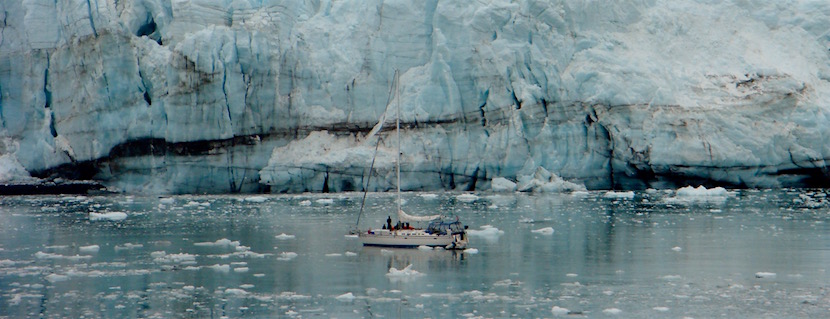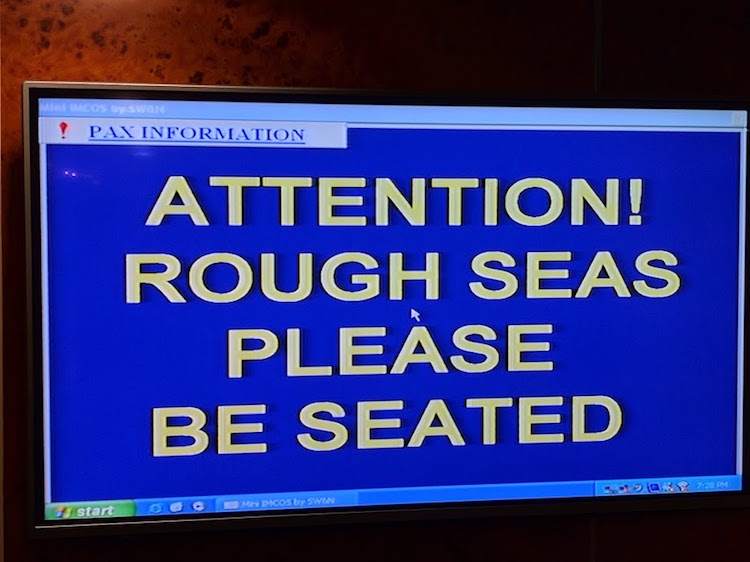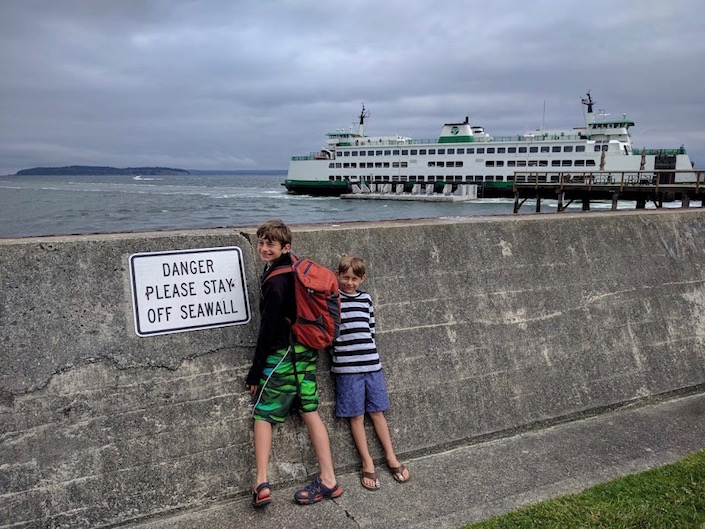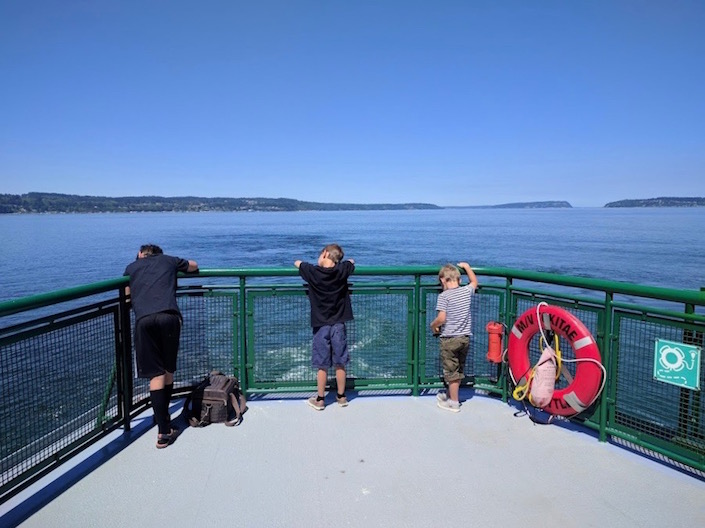
When Adventure Turns Scary
The summer travel season is just around the corner, and so I’ve decided it’s time for a confession.
Let me preface this by saying I have always enjoyed a moderate amount of risk and a high amount of adventure in my life. I’m pretty well-adjusted and emotionally stable. I tend to not dwell too much on the past or think too hard about things that I can’t control.
And yet, a little over a year ago, I completely lost my mental and emotional $#&! because I spent an hour positively sure that I was going to drown in the Straight of Gibraltar. We were on a ferry that probably should not have been sailing anywhere, much less on the open sea in a storm in the dark. Waves were going over the top of the boat. Glass and metal were breaking. The engines were shutting off. People were puking and screaming. I was holding on to my seat and trying hard not to barf. My best friend was next to me, holding on to her little boy and trying to sing to him while he cried.

Obviously, we survived. But then I had nightmares about it. And when our car hit a pothole the next day, I freaked out and almost puked. And I didn’t want to get on our plane in Madrid a few days later. And I didn’t want to get on the Seattle Ferry a few months later. And I didn’t want to go on a 20-minute boat ride in Maine almost a year later. That one stormy ferry trip had really messed me up.
This was an isolated incident, and it only lasted an hour. But I hadn’t recovered from it. And now I was becoming that person I swore I would never be: someone who was scared to travel.
So what’s an adventure-lover to do when this happens?
I’m not a therapist, or any other kind of psychology expert, but here’s how it went for me: I finally admitted to myself what was going on, and started saying it out loud. I found I was not alone. Turns out many of my fellow adventurers have their own irrational fears. I told myself this was not healthy or sustainable and became determined to change it. I did not let myself become forever scared of heights because of that one time I slipped on a high trail, and I was not going to be someone who lost the ability to enjoy perfectly safe boats because of one storm.
Being a science person, off to research things I went. There are plenty of tips and tricks out there for dealing with our fears. If you are in the same boat (ha!) as I was, do some research, and see what you can learn about yourself and whatever fears you have.
In my case, it turns out that fears of traveling (on any particular vessel or vehicle) are pretty darn common.
Here are the tactics that have helped me personally:
Talking it out with people who get it. The afore-mentioned best friend and I have had at least two major debriefing sessions about this event. It’s cathartic and validating and all-around healthy. I’m not saying you need to spill the details of every traumatic event in your life to everyone you meet (in fact, please don’t), but do talk about the big stuff – good and bad – with people who know you and care about you.
Knowing the stats. If you’re a logical person, this one’s for you. As it turns out, I am far more likely to die in a swimming pool than on any sort of boat on the ocean.
Learning how to distract myself. If any part of travel or adventure makes you fearful, try out an epic page-turner, a well-chosen music playlist, a few intense movies, or whatever might be able to effectively carry your thoughts away from your immediate surroundings.
Getting comfy. If you’re heading into a situation that you know will stress you out, why make it worse? Wear the right clothes/gear for the occasion, eat well, stay hydrated. Good self-care is important leading up to any physically or emotionally stressful event, and self-care includes exercise, sleep, meditation, or whatever else you need to feel comfortable, calm, and as relaxed as possible.
Admitting that my best efforts don’t always cut it. Enter: my awesome medical doctor. Now obviously medications or supplements are not going to be the right solution to fear and anxiety for everyone, but they can be great if you and your healthcare provider can find one that works for you. If a past event is significantly and consistently messing with your quality of life and your enjoyment of adventure and it’s not getting any better, consider seeing a counselor or therapist in addition to your regular medical doc. PTSD and the related issues are very real, and they can affect people in unexpected ways for unexpected reasons.
I’m pleased to say that these actions, combined with the passage of time, are working out okay for me. We’re planning our next boating adventure for the coming summer.

Now let’s take a moment to get a little philosophical about all this.
Eventually, we have to face our fears in life. We will experience injury and pain and loss, regardless of how safe we try to play it. Eventually, we will all die – maybe on a boat, maybe climbing a mountain, and maybe somewhere more “normal”. At that point, either we will have lived life to the fullest, pursued the things we wanted to do, pushed our mental and physical limits, and stretched our comfort zones… or we will have hidden out where we always felt safe.
Part of why we love adventure, why we chase it around the globe, is that there’s a little bit of risk there. A little bit of danger. We are fascinated by the unknown. We get an adrenaline surge when something scares us – an endorphin rush when we push through something really difficult. And we find that not only does it make us feel alive and deeply connected to our world and to each other, but that it’s a little bit addicting.
So off we go again…
